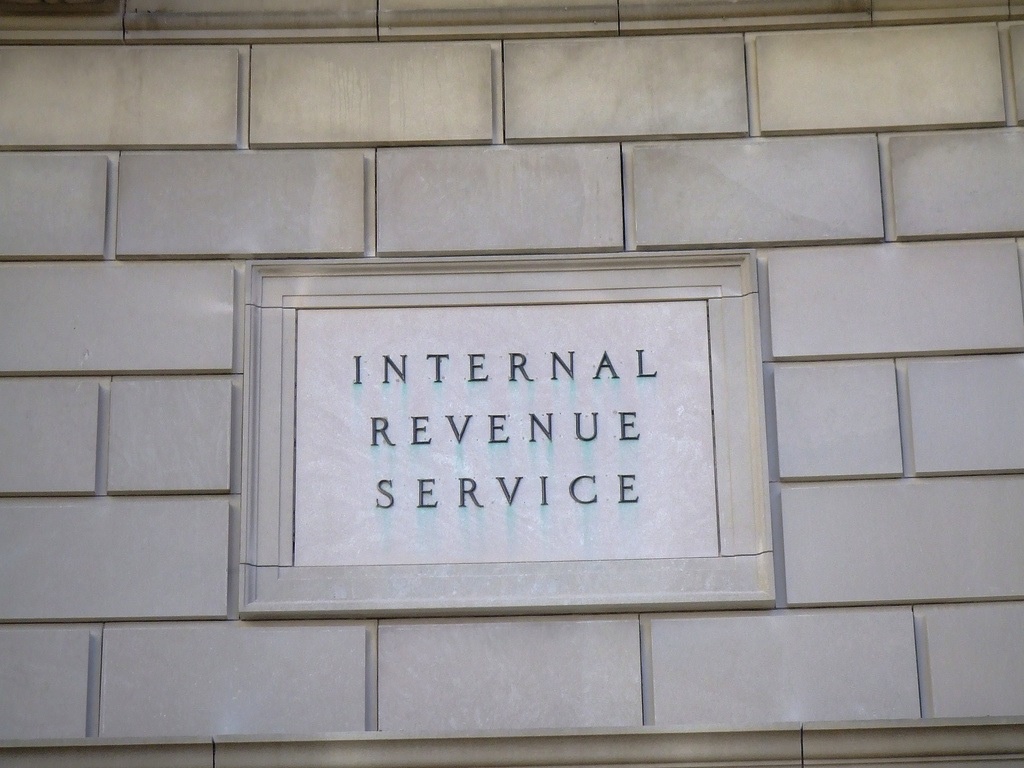Regulators fail to enforce campaign finance laws, so good-government groups spring into action

The Internal Revenue Service and the Federal Elections Commission are supposed to enforce campaign finance laws, but both agencies are currently crippled, leaving good-government groups with an uphill battle in advocating for clean elections. (Photo by Ray Tsang via Flickr.)
Some "social welfare" nonprofits have spent almost exclusively on individual political candidates this year and last, likely breaking campaign finance law. But the agencies responsible for enforcing the law don't seem eager to do anything about it.
Under law, these 501c4 nonprofits are supposed to spend the majority of their resources promoting social welfare, which excludes political campaign activities. They're also supposed to work for the general public, not for the "private benefit" of individuals or parties.
But some of these groups have spent large portions of their revenue supporting individual candidates for office. They include the Conservative Solutions Project, which has paid for millions in ads this year supporting Republican presidential candidate Sen. Marco Rubio of Florida, and Carolina Rising, which spent nearly all of its $4.9 million in revenue last year on ads supporting the candidacy of Sen. Thom Tillis, a North Carolina Republican.
Last month the watchdog Citizens for Responsibility and Ethics in Washington filed complaints with the Internal Revenue Service (IRS) against the two nonprofits, with CREW Executive Director Noah Bookbinder calling them "some of the first and most active of a new, dangerous kind of entity — unquestionably political groups posing as social welfare organizations."
Despite evidence that the groups have violated the law, the chance of action by the IRS or the Federal Elections Commission (FEC) — the two agencies most responsible for enforcing campaign finance law — is slim.
Here's why — and here's what good-government groups are doing about it.
A hobbled IRS
A bureau of the U.S. Treasury Department, the IRS not only collects and processes the country's taxes but is responsible for compelling tax payment by those who haven't done so. That includes groups that violate their nonprofit status by engaging in improper political activity.
But according to an investigation by the Center for Public Integrity, the IRS — crippled by budget cuts and under fire from conservative groups whose applications for nonprofit status were delayed — has "all but [quit] its regulation of politically active nonprofits."
The job of the IRS got more complicated in 2010 when the U.S. Supreme Court issued its Citizens United ruling allowing nonprofit organizations that aren't required to disclose their donors to raise and spend unlimited amounts on elections. This includes 501c4s as well as 501c5 labor unions and 501c6 trade associations.
But despite the vastly increased political spending stemming from the decision, Congress has cut the IRS budget by 18 percent. Meanwhile, the IRS nonprofit regulation division has lost 14 percent of its employees over the last two decades, even while the number of applications for "social welfare" nonprofit status has grown dramatically.
The IRS was further hobbled after the Treasury Department's Inspector General for Tax Administration found the agency had flagged certain groups that applied for nonprofit status based on political themes, which led to delays in processing applications from organizations affiliated with the Tea Party. The scandal that ensued led to investigations by Congress, the Justice Department, and FBI and the resignation of top IRS officials. This intense scrutiny created a climate of fear among agency employees and dramatically reduced IRS oversight of nonprofit groups.
"The IRS has been cowed into inaction by a series of congressional hearings intended to intimidate the agency and keep it from enforcing tax laws as they apply to [politically] active nonprofits," the nonpartisan Campaign Legal Center said in a recent press release.
Partisan gridlock at the FEC
The other federal office responsible for overseeing campaign finance rules is the FEC, an independent regulatory agency set up to enforce the Federal Election Campaign Act of 1971. It's responsible for disclosing campaign finance information, enforcing the law, and overseeing the public financing of presidential elections.
The six members of the FEC are appointed by the president, confirmed by the Senate, and serve six-year terms. No more than three commissioners may be members of the same political party. But reflecting the country's political polarization, the current roster of three Republicans and three Democrats is mired in gridlock. And that could mean trouble for the 2016 elections.
"The likelihood of the laws being enforced is slim," FEC Chair Ann Ravel, a Democrat, recently told The New York Times. "People think the FEC is dysfunctional. It's worse than dysfunctional."
While the Democratic members of the commission have said they are troubled by what they see as campaign finance laws being routinely broken by nonprofits and others, the Republican members don't necessarily agree.
For example, the FEC acknowledged that the 501c4 nonprofit Commission on Hope, Growth and Opportunity had violated reporting rules in the 2010 elections by failing to disclose millions of dollars spent on political advertising. But the FEC's three Republican members held up an investigation into the pro-GOP group until shortly before a five-year statute of limitations ended the probe.
What can be done?
With next year's elections sure to break spending records and the presidential election alone possibly costing as much as $10 billion, good-government advocates are trying what few options remain for enforcement of campaign finance laws.
Some groups are issuing complaints and planning lawsuits. The Campaign Legal Center has filed 19 complaints with the FEC since 2011, the most recent challenging four presidential candidates who raised money for their soon-to-be-announced campaigns but failed to abide by "testing the waters" fundraising limits. But only four of the Center's complaints have been resolved. The group now plans to sue the FEC for its inaction.
Others are taking rule-writing into their own hands. For two years now, the IRS has been saying it will propose new rules for nonprofit political activity but has yet to do so. Its first proposal, released in November 2013 and later withdrawn, was widely criticized for addressing only 501c4 nonprofits and for coming at a time when scandal had injured the agency's credibility. So Public Citizen's Bright Line Project, which has been advocating for a clarification of the rules, has sent its own draft regulations to the IRS.
Some good-government groups want to bypass the IRS and FEC altogether: They're calling on the Justice Department's Tax Division to step up and investigate the pro-Rubio Conservative Solutions Project (CSP).
"The Tax Division has the authority to intervene to stop this abuse of the tax laws," the Campaign Legal Center and Democracy 21 said in a Nov. 5 letter to the agency. "Given the extraordinary public interest in combating CSP's effort to deprive the public of timely disclosure about its efforts to influence the 2016 election, the Tax Division should act promptly to investigate and take appropriate action against CSP."
Tags
Alex Kotch
Alex is an investigative journalist based in Brooklyn, New York, and a reporter for the money-in-politics website Sludge. He was on staff at the Institute for Southern Studies from 2014 to 2016. Additional stories of Alex's have appeared in the International Business Times, The Nation and Vice.com.
